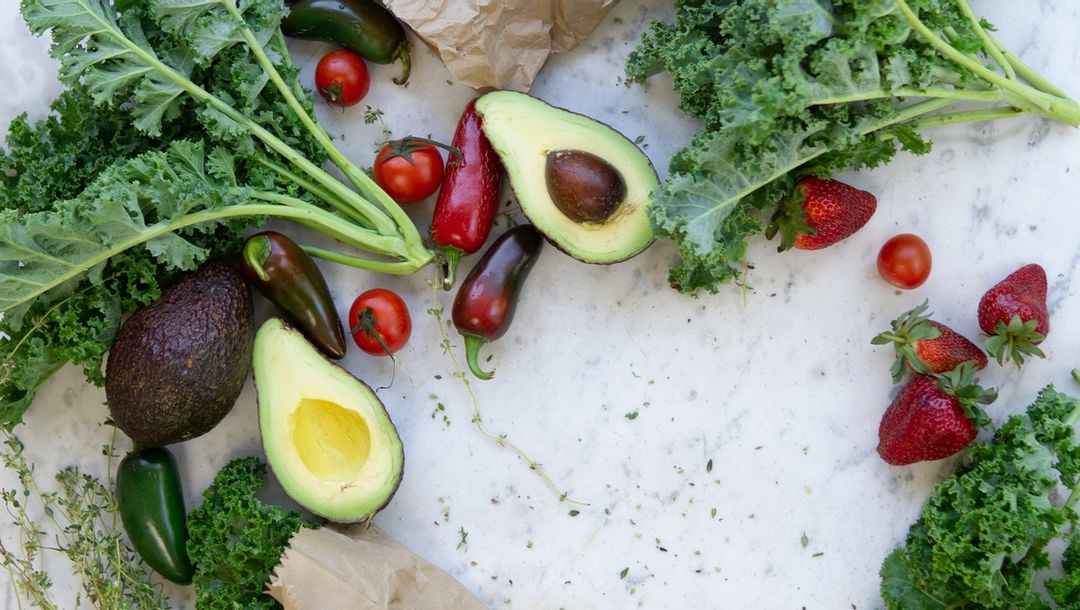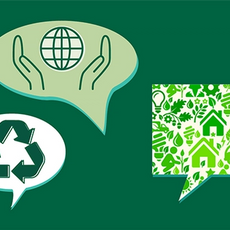Everything You Need To Know About Composting

May 21, 2020
5/21/2020
Written by: Lydia Mendel, social @blueland
What is compost? How do you start composting? Can you compost in a New York City Apartment? All valid questions and we have answers for you here! To start, we’ll address one key question: why is composting important?
In the U.S., there is a lot of food waste. According to the FDA, we throw away 50% of the produce that is produced every year. According to the EPA, 28% of our food and yard waste could be composted instead of thrown away in the trash. What happens if food ends up in landfills? It turns out that it rarely degrades as we’d expect, and instead can contribute harmful greenhouse gasses emissions. So, instead of throwing away food scraps in the trash, composting can be a great way to limit the amount of food waste that ends up in landfills, and can instead be used to provide nutrients back into the environment. Here is how it works:
What Is Compost?
Compost is broken down plant and food waste. When these scraps are broken down in the presence of oxygen they create a rich fertilizer-like soil that can be used in lawns and gardens. But, not all food waste will turn into compost. For compost to be created, food waste has to be broken down in certain conditions, one of the most important conditions is that compost needs to be broken down in the presence of oxygen. When food and plant waste is broken down in the presence of oxygen, it is a process called aerobic degradation or aerobic composting. The byproducts of this process are compost and water. The food and plant scraps break down completely and the nutrients from those scraps end up in the compost.
In a landfill, food and yard waste are often deprived of oxygen. Instead of the waste breaking down through aerobic degradation, it breaks down through anaerobic degradation, meaning without oxygen. This process is harmful to the environment because when microorganisms breakdown food and yard waste without oxygen present they release methane, a potent greenhouse gas. Composting can help avoid the release of methane from landfills, as it will divert food waste from landfills, and instead can be broken down aerobically into compost to be used for soil. So, now that you know what composting is, how can you create it?
Can I Compost Outside?
If you have access to a yard or similar outdoor space, you may choose to start an outdoor compost. If you want to create an outdoor compost pile, you should choose a section of your yard that isn’t exposed to direct sunlight and isn’t too close to trees. You may want to section off your compost pile with bricks or wood to keep your pile separate from the rest of your pile.
Starting Your Compost Pile
When starting a compost pile, it’s important to get a ratio of browns and greens. Browns tend to be yard waste like leaves and even some compostable cardboard. Greens tend to be food waste and food scraps like vegetable and fruit skins. You should start your pile with a layer of browns and then add in a mix of browns and greens. Make sure your add water to your pile so it maintains moisture. You should also plan on turning your compost every few weeks so all of the waste gets enough oxygen. Once ready, you can use your compost as fertilizer for your lawn or garden.
If you don’t want to have an open compost pile, you can have an outdoor compost container. You can purchase a specific outdoor compost container online, or repurpose an existing trash can. Just make sure that whatever container you choose can be sealed.
Can I Compost Indoors?
No outdoor space? No problem. There are plenty of indoor composting options too. According to The New York Times, in New York City alone, over 118 million pounds of food scraps were diverted from landfills through composting programs last year. So, now is the perfect time to get compost going and you can do it form the comfort of your home! For indoor composting you have a few options.
Vermicompost
One of the ways to indoor compost is through vermicomposting, which uses worms to help food waste break down. You’ll need a compost bin and worms to get started. Vermicompost makes small batches of rich compost, and once set up is relatively hands-off. It is an efficient composting method and takes less time than other indoor methods.
Composting Bins
You can recreate the outdoor composting process indoors with a ventilated compost bin. You’ll want to fill your bin with browns and greens to get started and add in food scraps along the way. This can be difficult in a small space, as the composting process takes a long time. You can purchase an indoor bin or make your own! To make your own check out this Apartment Therapy post on how to make your own compost bin.
Coco Peat and Ash Compost
This composting method is popular in Japan and offers an alternative to indoor compost bins and vermicompost. It instead uses a cardboard box, coco peat, and hardwood ash. Cover your compost box, and you can leave it to compost on its own. Learn more about this method from the New York Times.
Compost Pickup
If indoor composting doesn’t seem feasible for you, some cities have composting pickup services. However, many of these services may have been paused during quarantine, so make sure you check in with composting services ahead of time. If you do plan to use a pickup service, you can store your scraps in paper or compostable bags. Leaving your food scraps in the freezer while waiting for pickup is a great way to keep bugs and odors are bay!
What Can You Compost?
Finally, now that you’ve set up your composting operation what can you compost? You can compost most, but not all food scraps. Fruits and veggies make great compost, and you can fill your compost bins with those produce scraps. Eggshells are also great composting materials. You’ll want to stay away from composting poultry, meat or dairy products unless you have a specialized composting service. Meat and dairy products are high in fat which makes them difficult to break down and they attract bugs!
Composting is a great way to cut down on landfill waste, and keep methane emissions low. What method will you try?


